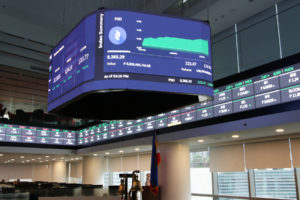Foreign businessmen brought in less long-term equity investments to the Philippines last year, which the central bank attributed to global economic uncertainties that overrode any bullish sentiment toward the country’s strong economic fundamentals.
In a statement, the Bangko Sentral ng Pilipinas (BSP) said the country posted $7.6 billion in net inflow of foreign direct investments for the whole of 2019. This represented a 23.1-percent decrease from the $9.9 billion in net inflow in 2018.
“Notwithstanding the country’s sound macroeconomic fundamentals, global uncertainties dampened investor sentiment during the year,” the BSP said.Last year’s lower investment tally marked the second consecutive year of decline after the record high level of $10 billion in foreign direct investments in 2017.
The data also showed that net investments in debt instruments dropped by 23.2 percent for the whole year to $5.2 billion. Similarly, net equity capital investments declined by 38.2 percent to $1.4 billion. Gross equity capital investments for the year—which originated mainly from Singapore, Japan and the United States—were channeled mostly to the financial and insurance; real estate; electricity, gas, steam and air conditioning supply; and manufacturing industries.Meanwhile, reinvestment of earnings amounted to $1 billion in 2019, the central bank said.
For the month of December 2019 alone, net inflow of foreign direct investments amounted to $1.2 billion, which was 69-percent higher than the $683 million recorded in December 2018.“This developed mainly on the account of the expansion in net equity capital investments, which reached $598 million, four times more than the $136 million posted in the same period in 2018,” according to the BSP.Net equity capital investments increased as equity capital placements rose to $626 million from $165 million.
Net investments in debt instruments (consisting mainly of intercompany borrowing/lending between foreign direct investors and their subsidiaries/affiliates in the Philippines) decreased slightly to $484 million from $486 million in the same month in 2018.
Meanwhile, reinvestment of earnings grew by 17.2 percent to $71 million during the period.
Equity capital placements came mostly from Singapore, the Netherlands, Japan and the United States.
These capital infusions were directed mainly to electricity, gas, steam and air conditioning supply, and financial and insurance activities. INQ


